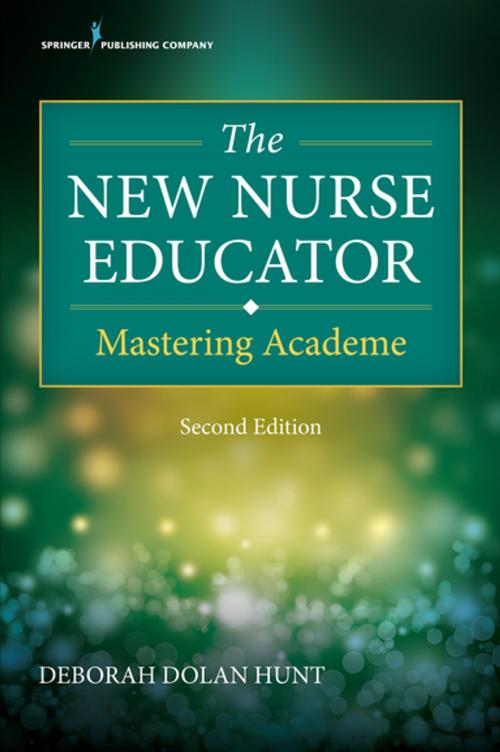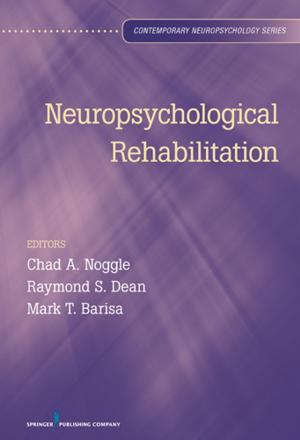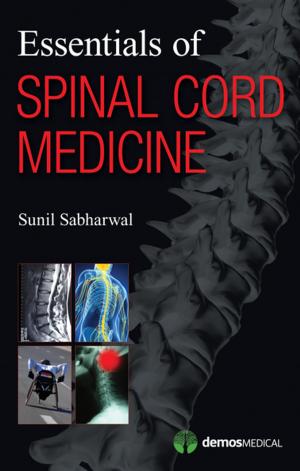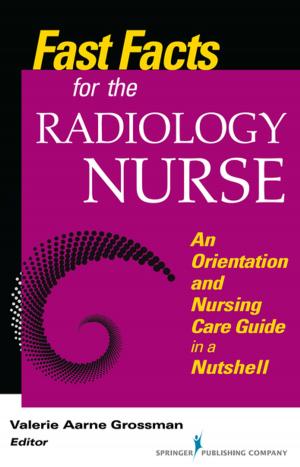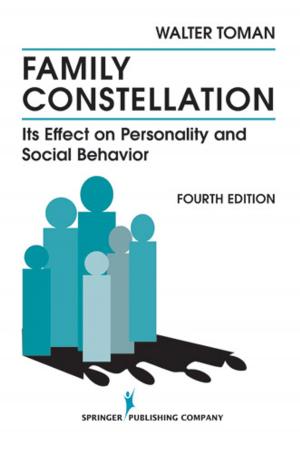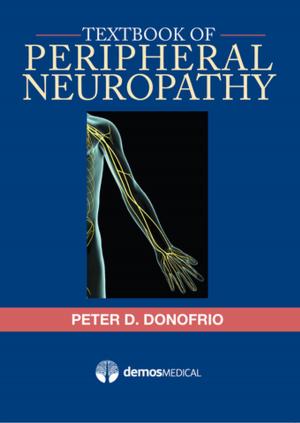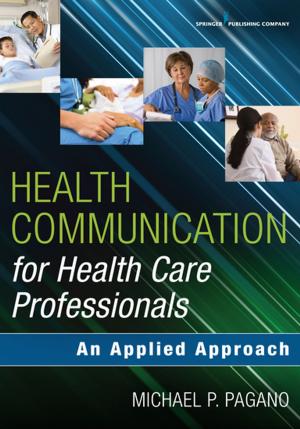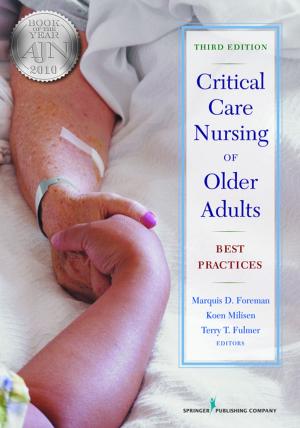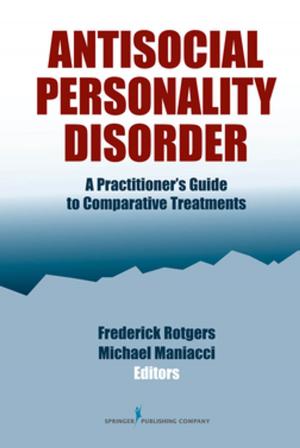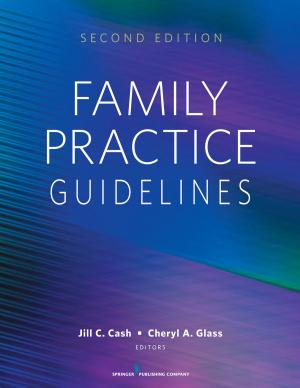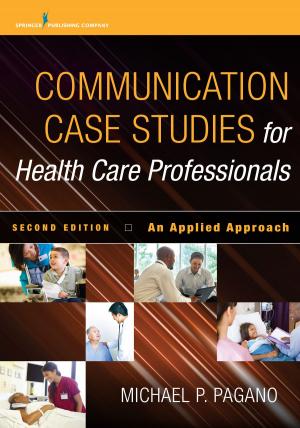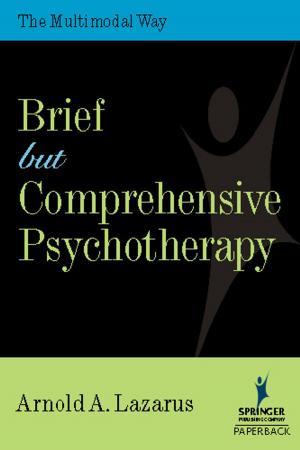The New Nurse Educator, Second Edition
Mastering Academe
Nonfiction, Health & Well Being, Medical, Nursing| Author: | Deborah Dolan Hunt, PhD, RN | ISBN: | 9780826181831 |
| Publisher: | Springer Publishing Company | Publication: | October 28, 2017 |
| Imprint: | Springer Publishing Company | Language: | English |
| Author: | Deborah Dolan Hunt, PhD, RN |
| ISBN: | 9780826181831 |
| Publisher: | Springer Publishing Company |
| Publication: | October 28, 2017 |
| Imprint: | Springer Publishing Company |
| Language: | English |
Praise for the first edition from Amazon reviews:
" . . . a wonderful resource for new and experienced nurse educators. This book contains valuable information on teaching, service, and scholarship. It also contains expert advice from well-known faculty. For example, Dr. Jean Watson and Dr. Geraldine Bednash. There is also a chapter on Mentoring by Dr. Connie Vance. I would highly recommend this book to all nurse educators."
". . . an excellent resource for both new and experienced educators. It contains a wealth of information on all aspects of nursing education with a focus on teaching, service, and scholarship. It also contains expert advice from seasoned nurse educators and faculty members. I would highly recommend this book to all current and aspiring nurse educators."
This unequalled resource guides novice nurse educators step-by-step through the challenging process of transitioning from service to academe. It comprehensively addresses not only the fundamentals of teaching, evaluation, and curriculum development, but also the entire spectrum of skills and duties required of the nurse educator. This second edition delivers two new chapters devoted to the hospital-based educator, global health issues, and the future of nursing education. It includes new clinical teaching models and pedagogies and emphasizes the use of technology in a variety of teaching and learning strategies. Key updates examine the current and future nursing workforce, emerging and evolving nursing programs, and innovative trends in curricula design, along with new information on infectious diseases, genomics, and legal and ethical concerns.
Based on the author's personal journey from nursing practice to academe, the text addresses ways to "test the waters" of the new role. It outlines preparation requirements and discusses learning styles, curriculum development, theoretical frameworks, cultural diversity, and students with learning disabilities. It addresses tenure and promotion, collegiality, service, leadership, mentoring, writing for publication, and scholarship. Additionally, the text prepares students for the interview process and includes sample CVs, patient education handouts, and course objectives. Learning objectives, review questions, and case vignettes in each chapter, along with tables and bulleted information, further contribute to the text’s value as an outstanding resource for both academic and hospital settings.
New to the Second Edition:
- New chapter devoted to the role of the hospital-based educator
- New chapter on global health and education, health care policy, and the future of nursing education
- Noted experts discuss simulation, gaming and education, legal concerns, and global health nursing
- New clinical teaching models and pedagogies
- Emphasizes the use of technology
- Examines the current and future nursing workforce
- Emerging and evolving nursing programs
- Innovative trends in curricula design
- New information on infectious diseases and genomics
Key Features:
- Provides highly practical, step-by-step information on all components of being a nurse educator/faculty member
- Helps nurses transition from service role to educator/faculty role
- Includes advice from novice and seasoned nurse educators, nurse leaders, and nursing theorists
- Includes learning objectives and review questions in each chapter
- Provides sample forms and documents for CVs and developing course content
Praise for the first edition from Amazon reviews:
" . . . a wonderful resource for new and experienced nurse educators. This book contains valuable information on teaching, service, and scholarship. It also contains expert advice from well-known faculty. For example, Dr. Jean Watson and Dr. Geraldine Bednash. There is also a chapter on Mentoring by Dr. Connie Vance. I would highly recommend this book to all nurse educators."
". . . an excellent resource for both new and experienced educators. It contains a wealth of information on all aspects of nursing education with a focus on teaching, service, and scholarship. It also contains expert advice from seasoned nurse educators and faculty members. I would highly recommend this book to all current and aspiring nurse educators."
This unequalled resource guides novice nurse educators step-by-step through the challenging process of transitioning from service to academe. It comprehensively addresses not only the fundamentals of teaching, evaluation, and curriculum development, but also the entire spectrum of skills and duties required of the nurse educator. This second edition delivers two new chapters devoted to the hospital-based educator, global health issues, and the future of nursing education. It includes new clinical teaching models and pedagogies and emphasizes the use of technology in a variety of teaching and learning strategies. Key updates examine the current and future nursing workforce, emerging and evolving nursing programs, and innovative trends in curricula design, along with new information on infectious diseases, genomics, and legal and ethical concerns.
Based on the author's personal journey from nursing practice to academe, the text addresses ways to "test the waters" of the new role. It outlines preparation requirements and discusses learning styles, curriculum development, theoretical frameworks, cultural diversity, and students with learning disabilities. It addresses tenure and promotion, collegiality, service, leadership, mentoring, writing for publication, and scholarship. Additionally, the text prepares students for the interview process and includes sample CVs, patient education handouts, and course objectives. Learning objectives, review questions, and case vignettes in each chapter, along with tables and bulleted information, further contribute to the text’s value as an outstanding resource for both academic and hospital settings.
New to the Second Edition:
- New chapter devoted to the role of the hospital-based educator
- New chapter on global health and education, health care policy, and the future of nursing education
- Noted experts discuss simulation, gaming and education, legal concerns, and global health nursing
- New clinical teaching models and pedagogies
- Emphasizes the use of technology
- Examines the current and future nursing workforce
- Emerging and evolving nursing programs
- Innovative trends in curricula design
- New information on infectious diseases and genomics
Key Features:
- Provides highly practical, step-by-step information on all components of being a nurse educator/faculty member
- Helps nurses transition from service role to educator/faculty role
- Includes advice from novice and seasoned nurse educators, nurse leaders, and nursing theorists
- Includes learning objectives and review questions in each chapter
- Provides sample forms and documents for CVs and developing course content
